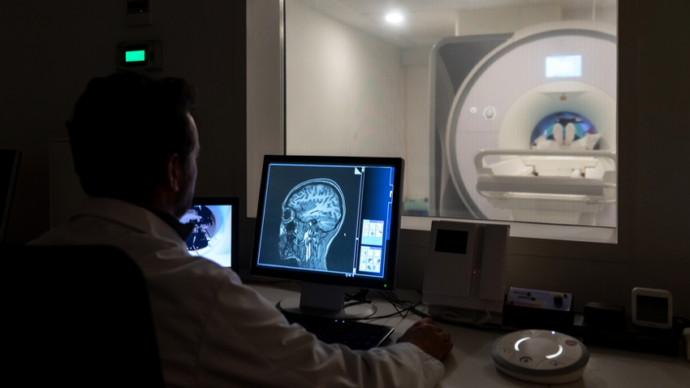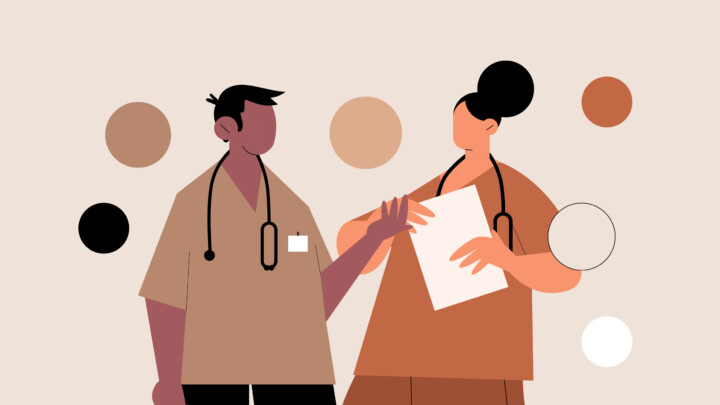
The renowned and celebrated film actor Bruce Willis is stepping away from acting. His family announced over social media that he has aphasia, and it is reportedly impacting his cognitive abilities.
According to Johns Hopkins Medicine, “Aphasia is a language disorder caused by damage in a specific area of the brain that controls language expression and comprehension. Aphasia leaves a person unable to communicate effectively with others. Many people have aphasia as a result of stroke.”
The New York Times recently reported: “[A]bout one million people in the United States currently [have] aphasia, which disrupts the ability to speak, read and write…
Aphasia is a constellation of symptoms that make it difficult or impossible to express or comprehend language. The disorder stems from damage to the parts of the brain that are responsible for language functions, which are typically housed on the left side of the brain. Aphasia can be devastating for patients, disrupting their ability to take part in everyday life.
All cases of aphasia stem from neurological changes in the brain. Strokes resulting in brain damage are the number-one cause, said Dr. Shazam Hussain, director of the Cerebrovascular Center at Cleveland Clinic in Ohio. But it can also be caused by degenerative conditions like dementia and Alzheimer’s disease. According to the National Institute on Deafness and Other Communication Disorders, other triggers include brain injuries, including from severe blows to the head; brain tumors; gunshot wounds and brain infections…
While there is no cure, patients with aphasia can seek speech and occupational therapy.
The National Aphasia Association recommends two primary methods of treatment. Impairment-based therapies involve evaluating and then targeting specific reading, speaking and writing skills through activities like fill-in-the-blank exercises and training patients to remember synonyms and antonyms. Communication-based therapies focus on rebuilding conversation and cognition skills that patients use to participate in everyday activities; they may role-play scenarios like ordering a coffee or speaking on a video call, said Ms. Gendal, the speech-language pathologist.”
In a recent Sermo poll, 420+ global physicians discuss their experiences treating aphasia—with 81% responding that most patients who suffer from this disorder are over the age of 65.
When asked about treatment therapies, 61% said they’ve seen success with impairment-based therapies; and 74% have seen success with communication-based therapies.
Ninety-one percent are hopeful that Bruce Willis’ announcement will help bring broader awareness for the millions of other people who suffer from this neurological condition.
Here’s what physicians recommend to patients who are concerned about brain health:
- 79% said quit smoking (if they smoke)
- 75% said exercise regularly
- 74% said eat a balanced, healthy diet
- 70% said maintain or improve healthy blood sugar, blood pressure, and cholesterol levels
- 66% said stimulate the brain with puzzles and games
- 56% said build social connections
Below, Sermo physicians from around the world share their professional insights, perspectives, and opinions on this important topic—in their own words:
Yes, most of the patients that I have seen in practice with this disorder are middle-aged, elderly… although it can occur at any age, even in children! Aphasia is a language disorder that affects the ability to communicate, either to express or understand verbal or written language; it can be caused by an event or stroke or a degenerative disease of the central nervous system. The main treatment consists of therapy of language and speech. Although treatment can help, this disease has no cure!
General Practitioner, Cuba
Important and interesting article. The support and understanding of the family is a fundamental basis to help these patients.
Anesthesiology, Venezuela
Live a Healthy Lifestyle, load [up] on plenty of antioxidants, eat more Vegetables and Fruits, get a Pet Companion, play and exercise with the Pet Companion, attend Social Clubs, like some from AARP in the neighborhood. These are only some of the things senior patients can do to try to prevent and limit brain aging, degeneration process.
Pediatrics, U.S.
This condition has a high incidence today. It is estimated that it mainly affects patients over 65 years of age, but it can occur in young adults. There are several risk factors that influence its appearance, but when it is caused by paralysis of the facial nerve in isolation, recovery is more favorable and with the help of rehabilitation, a high percentage of resolution of the paralysis is achieved.
General Practitioner, Cuba
He probably has semantic dementia, a form of frontotemporal lobe dementia like my brother had. It occurs more frequently in younger men. My brother’s started in his 50’s. The average life span is 5 to 15 years. My brother was fortunate that only one temporal lobe was affected. As it progresses it affects the frontal lobe. It is caused by the Tau protein. Alcohol is not good for the brain but it is not the cause. For my brother it started with problems finding words, then to the loss of more speech, reading, writing, not just the form of the words but their meaning — semantics.
Family Medicine, U.S.
Pathologies such as aphasia affect a large number of patients throughout the world and they are not always given the attention required due to ignorance, so it is important that issues such as these be addressed at all levels of information to motivate study and research on them.
General Surgery, Cuba
It certainly does sound more like Primary Progressive Aphasia as he had to be given his lines via earbuds and later on was not even able to understand some of his cues. I have seen a few cases of this in the past 5yrs. Never saw it before and now I have a few cases. They have been in their late 50s and started with just a bit of memory loss for words but within a few yrs, progressed to being unable to converse. It is quite heartbreaking to watch….and sadly, communication tools have not worked well. They did at the beginning but as the dementia worsened, the tools were not able to be implemented. I hope we can find a cure or at least a preventative cure for this awful disease. It is hard on the patient and hard on the family and caregivers.
General Practitioner,, Canada
Aphasia itself is not the disease, but rather a sign and/or symptom of an underlying neurological disease.
Pediatrics, Venezuela
My dad was diagnosed with primary progressive aphasia at age 74. [The] signs were a difficulty finding words or having to repeat, and nonsensical emails. It worsened and by age 76, he couldn’t speak. He never had a stroke, but his diet wasn’t great, and he had diabetes. He was always very socially engaged and mechanically inclined, so never lacked for social and mental engagement.
Family Medicine, U.S.
I was saddened by the news of Bruce Willis’ condition. He has long been one of my favorite actors. My husband has dementia, probably secondary to Parkinson’s disease, and I have become his primary caretaker. It is heart breaking to watch a brilliant man deteriorate. And I cannot imagine the frustration, anger, fear, and desolation these people must endure. My sympathies to Mr. Willis and his family.
Family Medicine, U.S.
You have to consider it might be a Primary Progressive Aphasia, which means it is a type of frontotemporal dementia.
Psychiatry, Mexico
Add multi vitamin and CoQ10.
Family Medicine, U.S.
The brain is a Pandora’s box and this is a symptom that must be studied. Its underlying disease requires very complex studies and, above all, early stimulation, a cerebral CT angiography and a study of micronutrients. Add mineral vitamins to your therapy.
Pediatrics, Venezuela
In my experience, I have not seen many patients with aphasia. However, those that I have seen in my consultation, if they are older than 65 years and the main cause has been stroke of ischemic aetiology. It goes without saying that healthy lifestyle habits and periodic medical check-ups reduce the risk of stroke.
General Practitioner, Columbia
Mental gymnastics like learning a foreign language seem to help prevent the condition.
Neurosurgery, U.S.
Everyday thousands of Sermo member physicians from diverse backgrounds and experiences exchange knowledge with each other. Sermo is the original medical social network that empowers today’s physicians. Over 1 million fully verified physicians across more than 150 countries come to our platform to talk with peers, participate in paid medical studies, solve challenging patient cases, contribute to the world’s largest database of drug ratings – and enjoy a few laughs along the way.
Interested in more? Check back any time and follow us on Facebook, Twitter, and LinkedIn for the latest and greatest in physician insights.
Are you a physician or healthcare practitioner?
Explore the many benefits of joining Sermo’s medical community and sign up for free today.














